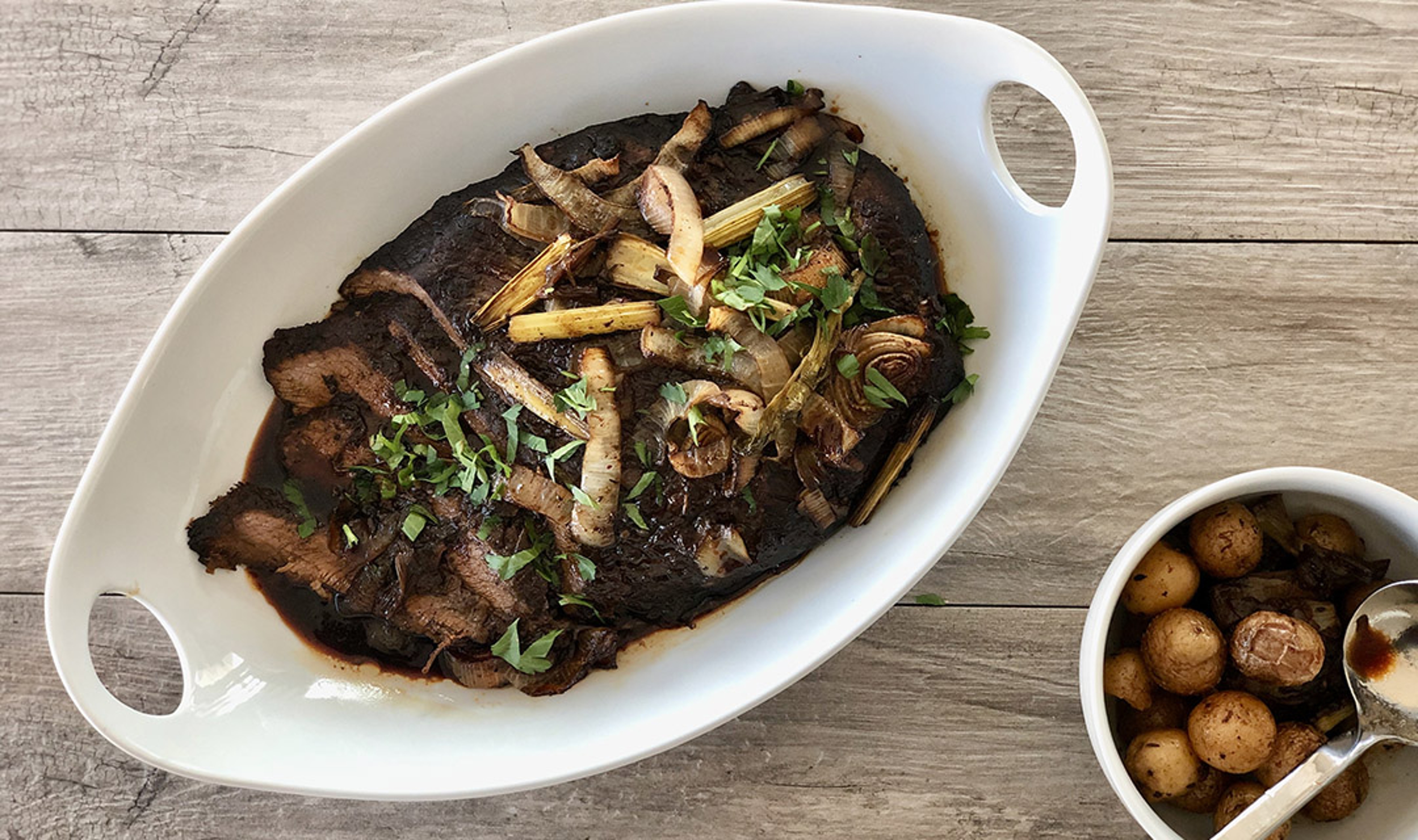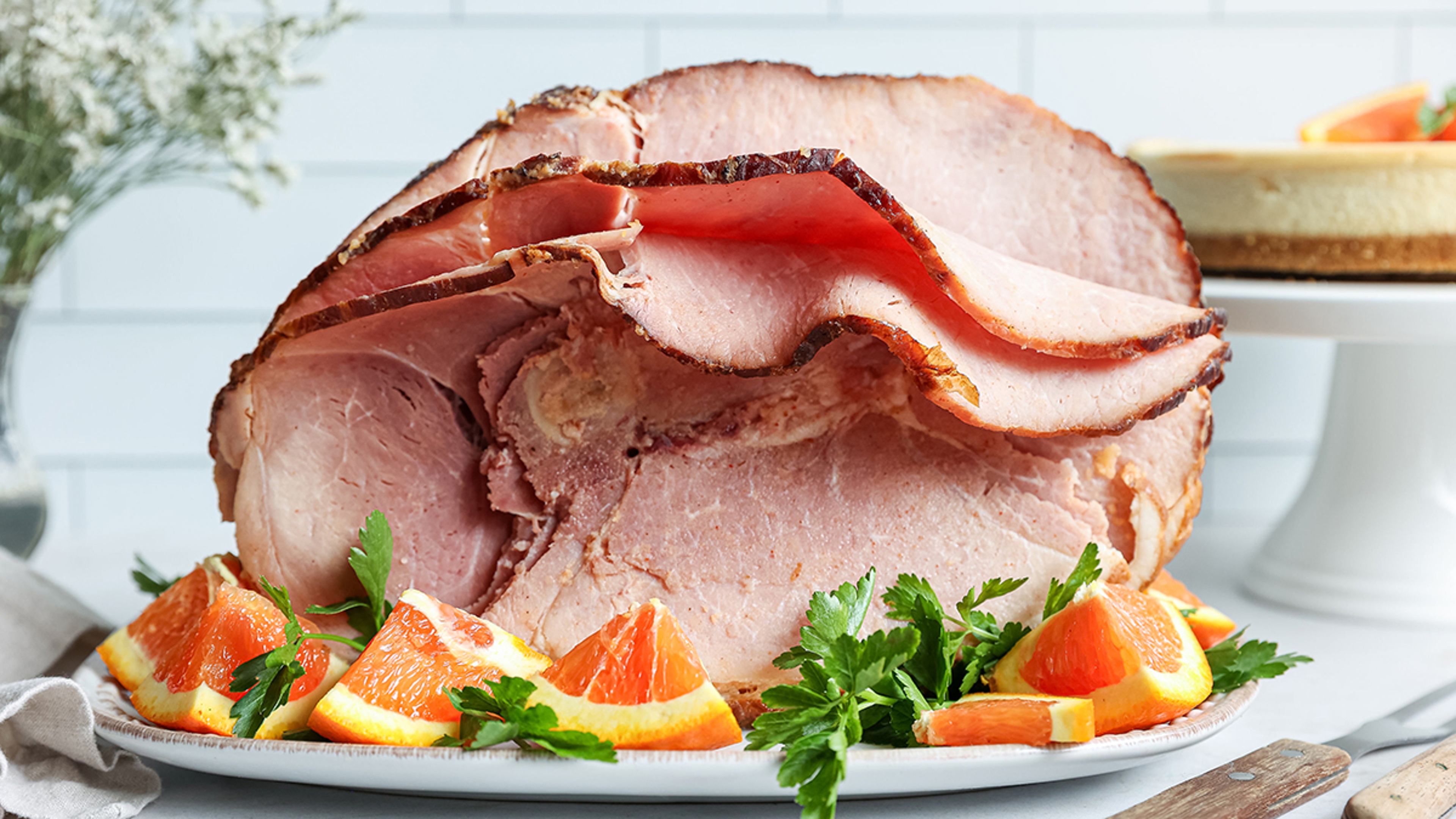Slow-Cooked Beef Brisket
Slow-cooked brisket, a cut of meat traditionally eaten at Jewish holidays, needs a lot of time and liquid to achieve perfection.
Mar 25, 2025
Brisket has become the go-to meat dish for many Jewish celebrations for several reasons. For starters, this primal cut is kosher, coming from the front of the cow — all meat from the hindquarters is not kosher. Its large size also makes it perfect for serving a hungry holiday crowd. Since a slab of brisket is so big, it wasn’t something you’d eat daily, making it designed for serving at special occasions and on holidays.
Back in the day — Ashkenazi (Central and Eastern European) Jews have been eating brisket since the 1700s — brisket was also a more economical option for families on a budget who still wanted to serve up something feast-worthy for Passover. You can’t just eat matzo ball soup...
The key to the perfect brisket
The goal with brisket is to make it moist and tender, but all too often it comes out dry and overcooked. Since brisket comes from a heavily worked muscle, it can be tough. The key is to cook it low and slow: low heat for a long length of time. Plus, use a bold sauce like soy sauce or ketchup. Continue adding liquid throughout the cooking process to keep the brisket from getting dry.
Serve this tasty slow-cooked brisket with a simple green salad topped with pear balsamic vinegar for a sweet flavor companion. If cooking the meat seems too unwieldy, you can also purchase your brisket already prepared.
.svg?q=70&width=384&auto=webp)







